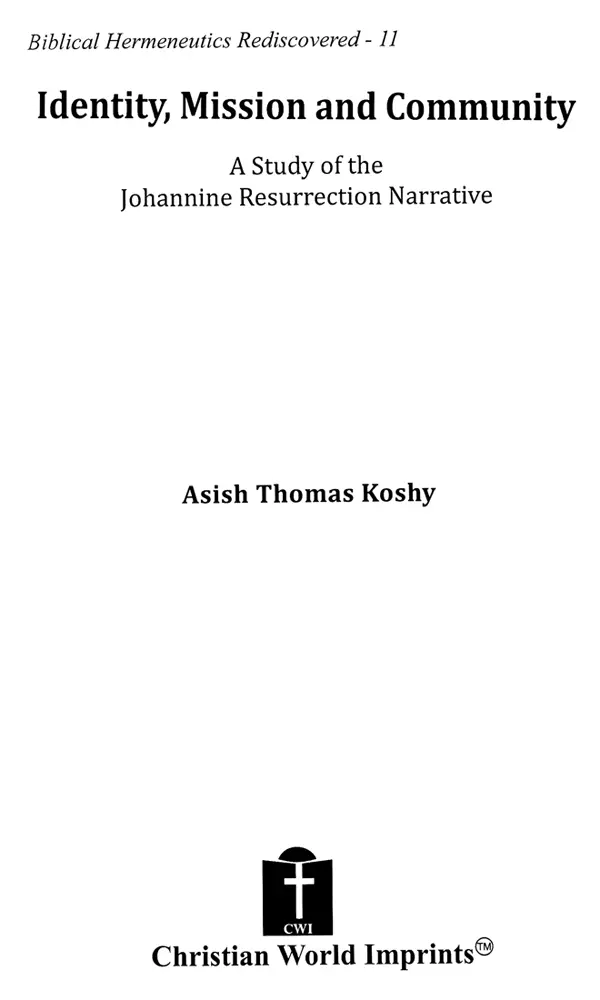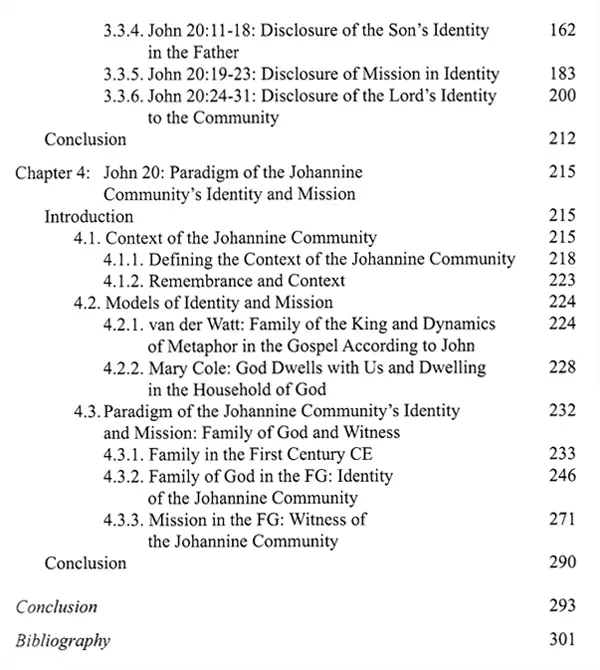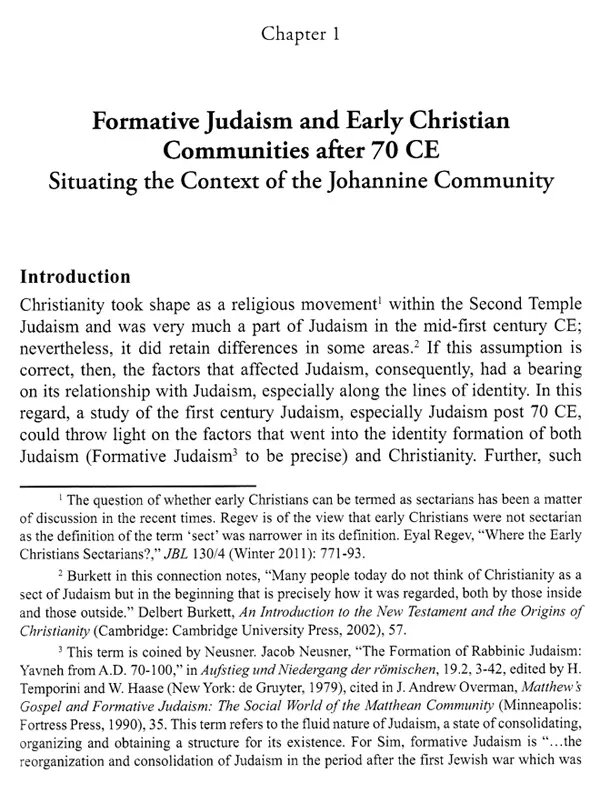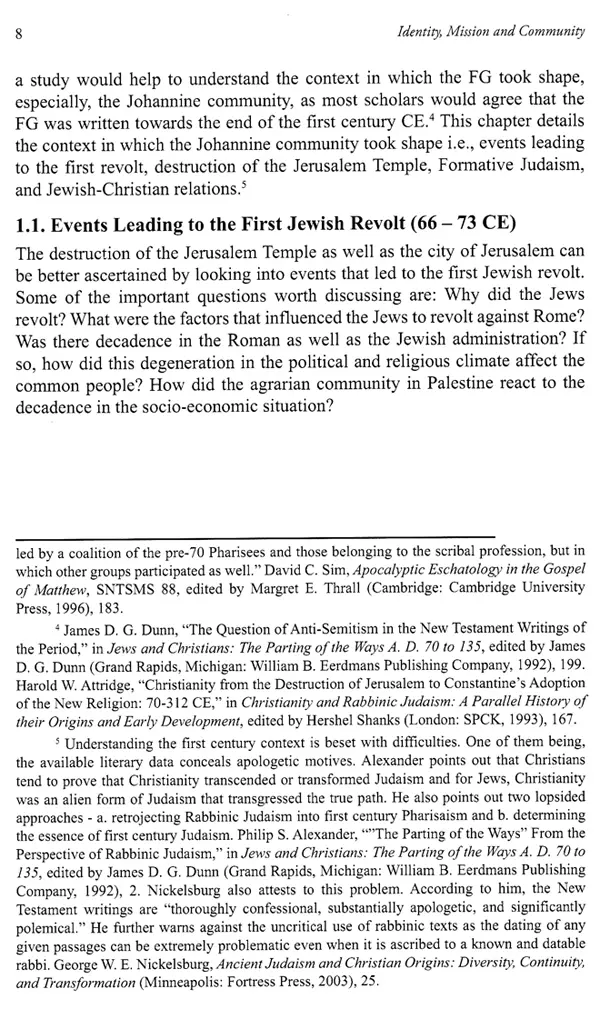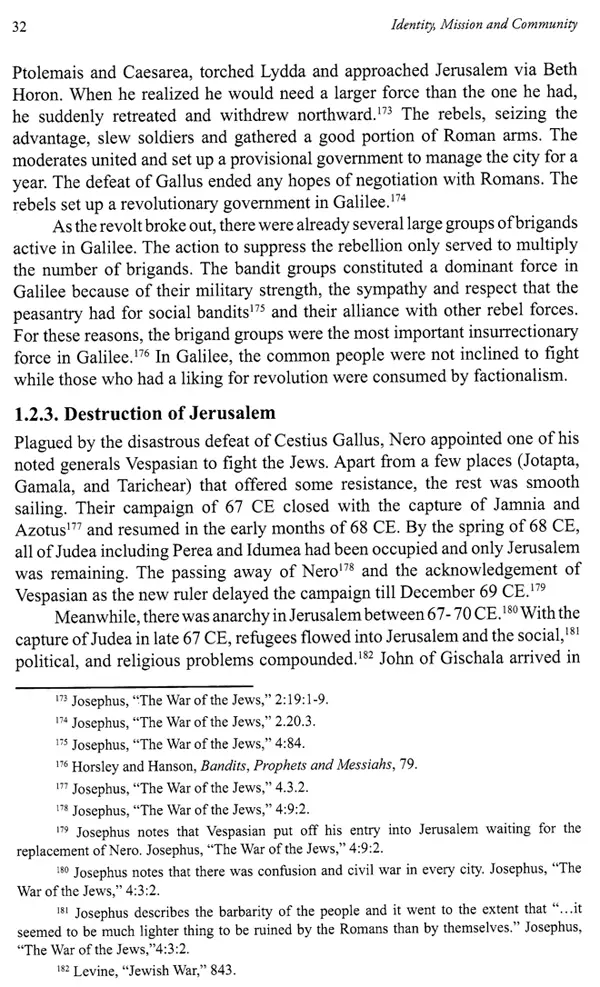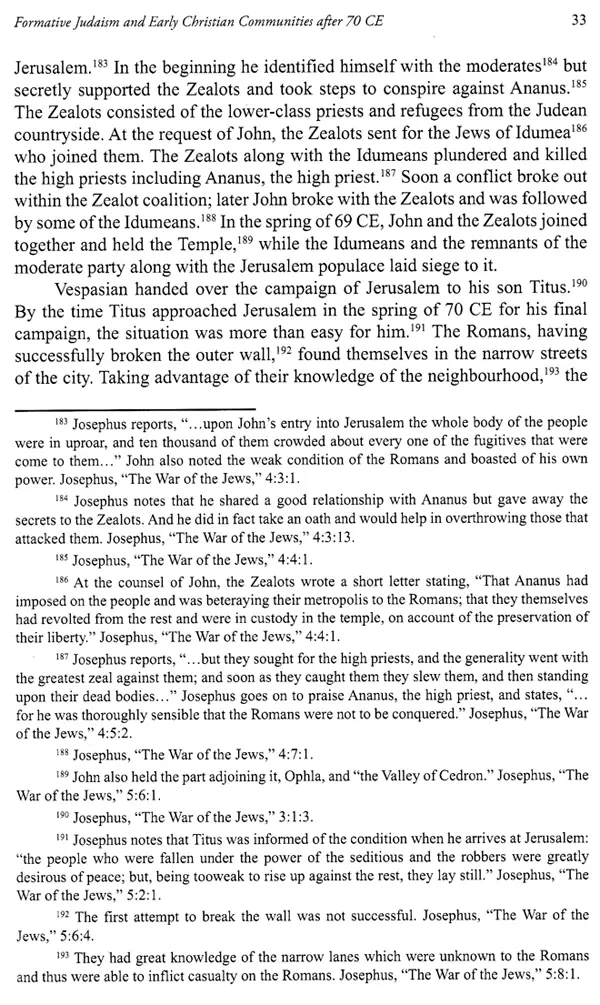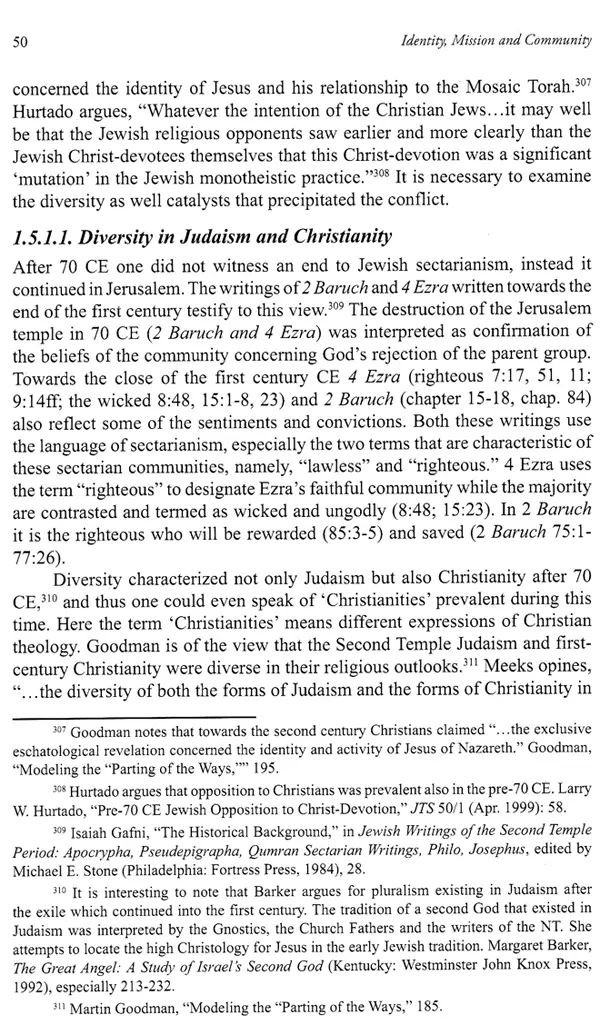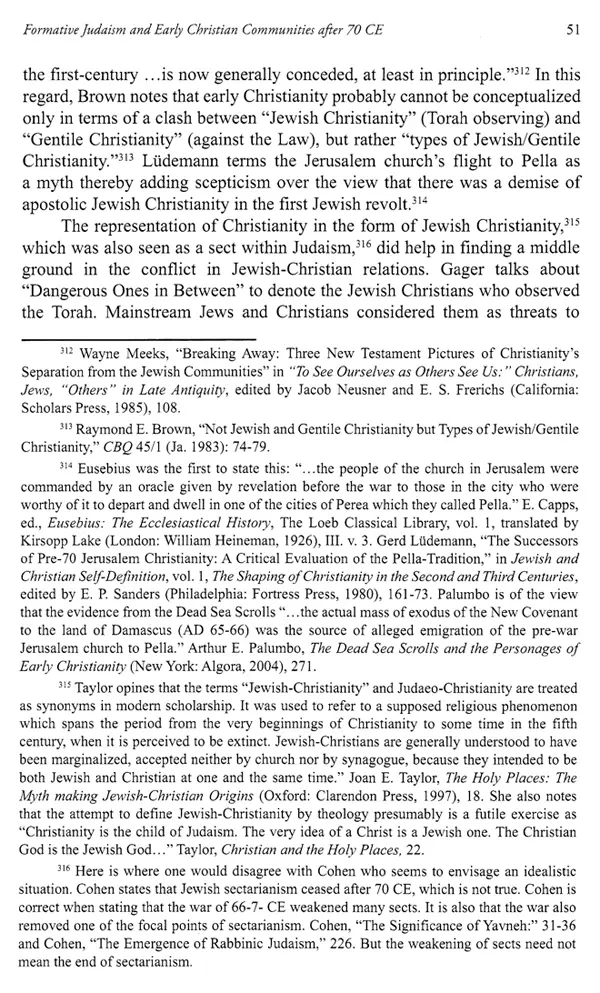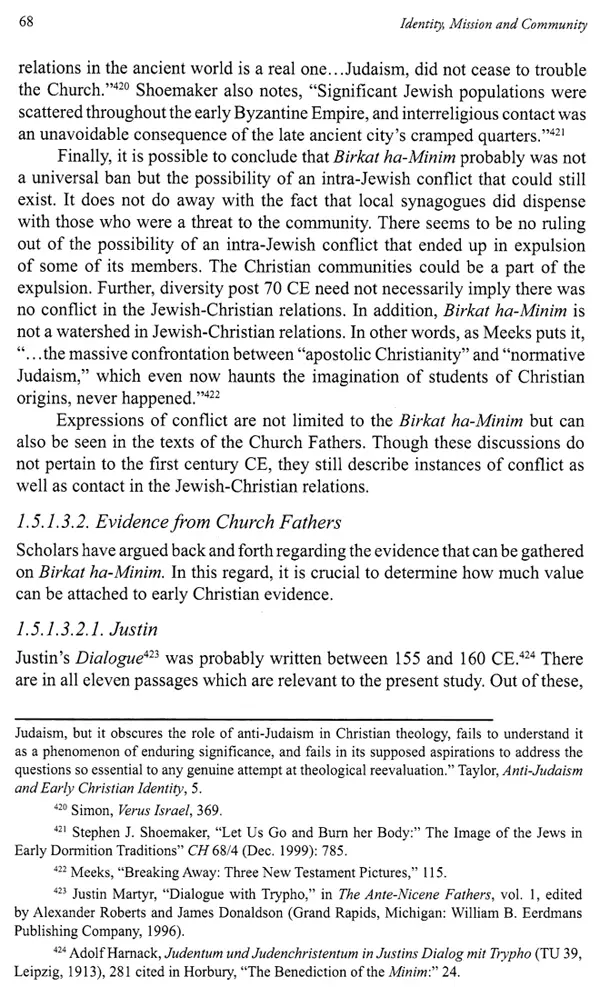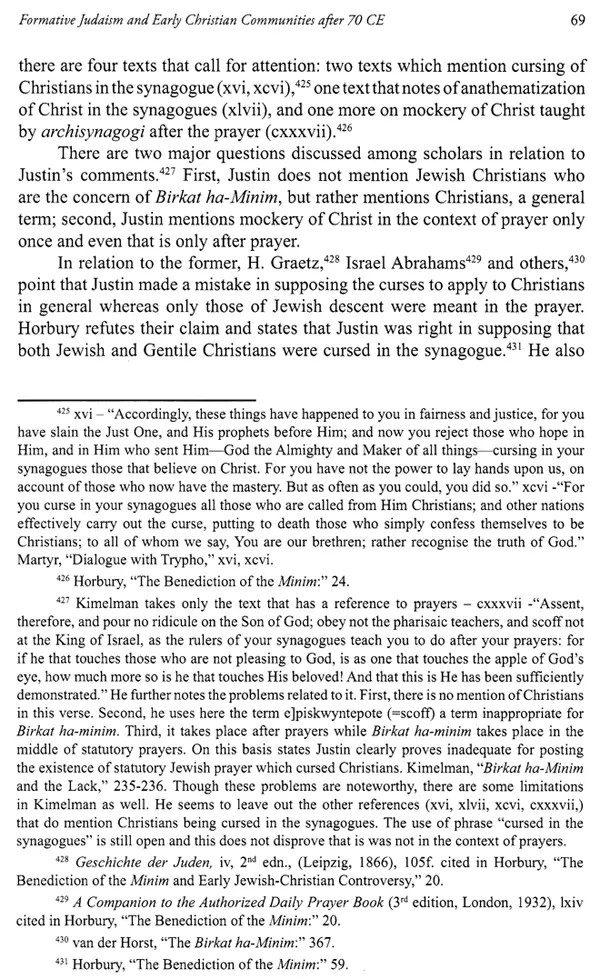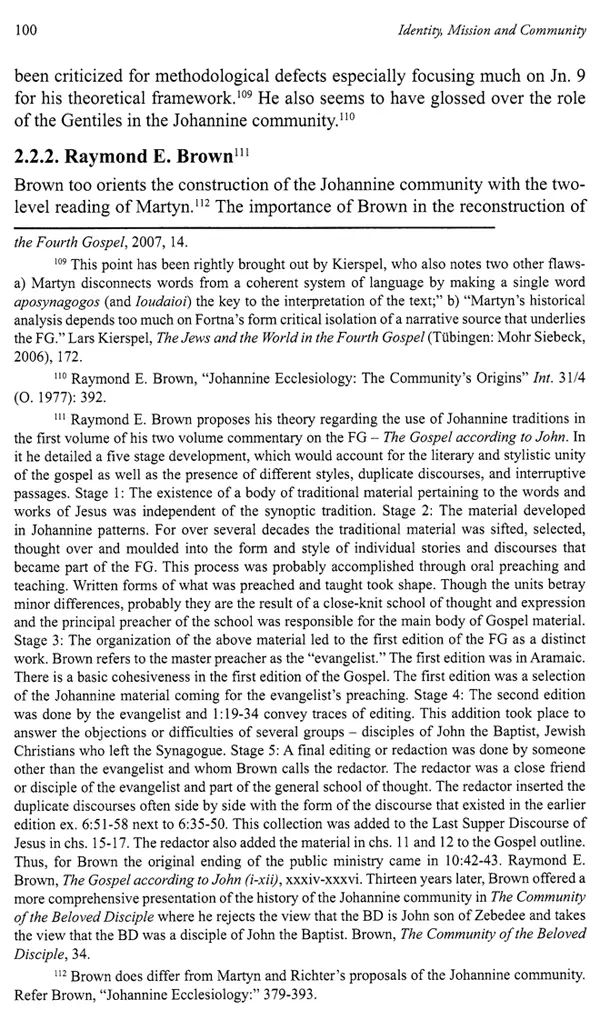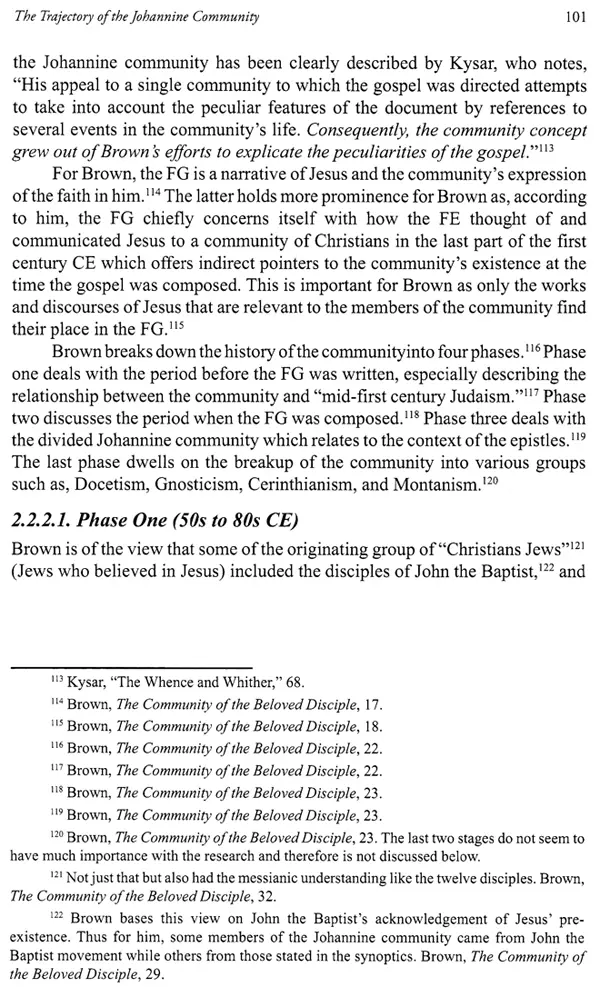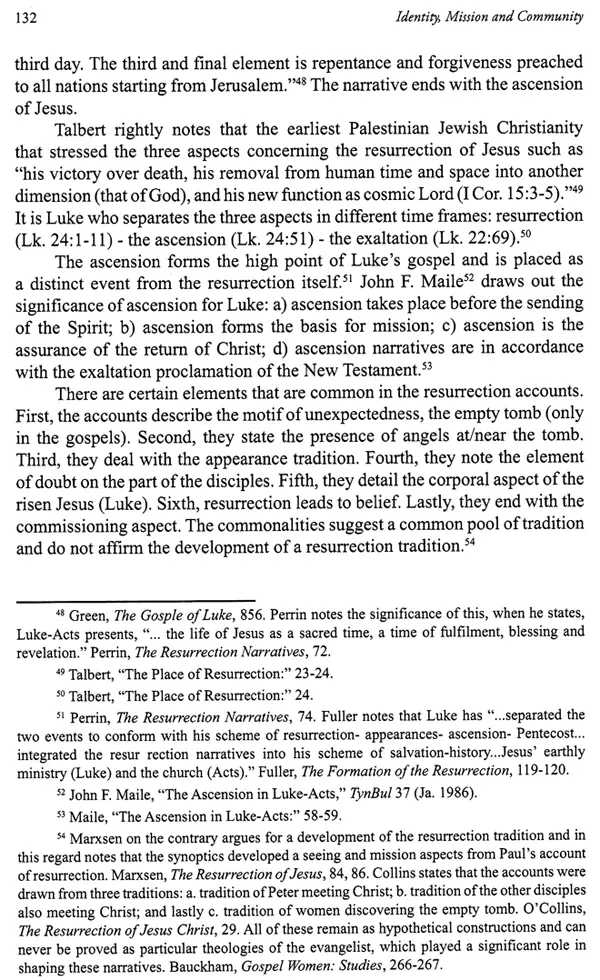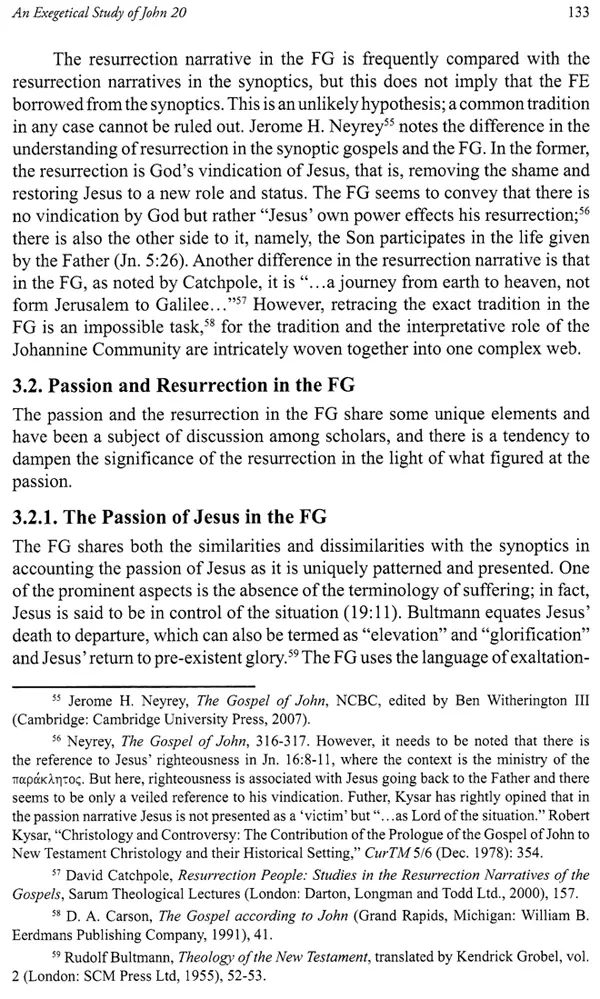
Identity, Mission And Community - A Study of the Johannine Resurrection Narrative
Book Specification
| Item Code: | UAZ575 |
| Author: | Asish Thomas Koshy |
| Publisher: | Christian World Imprints, Delhi |
| Language: | English |
| Edition: | 2018 |
| ISBN: | 9789351482529 |
| Pages: | 338 |
| Cover: | HARDCOVER |
| Other Details | 9.50 X 6.50 inch |
| Weight | 740 gm |
Book Description
The book explores the aspects of identity, mission and community in the Johannine resurrection narrative. Identity is defined in terms of Family of God, which is distinct from the divine family (the Father, the Son and the Spirit) and the earthly family. The Family of God, made possible through the work of the Father, the Son and the Spirit, transcends earthly categories and identities. It ushers a new set of relationships for the community where God becomes the Father of those who belong to the Son. Further, the Family of God also defines mission as witnessing to the shared relationship in the divine family to the world.
Asish Thomas Koshy is an Assistant Professor of New Testament at Union Biblical Seminary. He lives in Pune with his wife, Sara (Deepa) and daughters, Akshitha and Ankitha.
By connecting the Resurrection narrative in John and the mission of the post- Apostolic Church, Dr. Asish Koshy has done an excellent monograph, which, I am sure, will be a creative contribution to the New Testament scholarship in India. Since, the work was done primarily as a D.Th thesis, he has systematically revised the same for wider readership as a book entitled Identity, Mission and Community: A Study of the Johannine Resurrection Narrative, an excellent articulation of the early history of Christianity using contextual hermeneutical tools. It is not an easy task for a researcher to enter into the world of the Johannine community as there are many complexities involved in the origin and development of the Johannine community.
Dr. Asish has painstakingly analysed the issues and concerns debated within the community of John in terms of identity and mission of the early church. In a postmodern world, the issue of identity is very significant as neo- colonial powers dominate the socio-political systems of our time. It is very interesting to observe how the Johannine community carried out the mission of the church in a dedicated manner within the challenging frame and structures of the Post-resurrection communities. Dr. Asish could further thus evaluate the contribution of mainstream Johannine scholars as well as other significant voices in the field in order to construct a world of the Johannine community.
I am indeed fascinated by the way in which Dr. Asish could combine the issue of identity with the post-Apostolic concerns of Christian mission. It is noted that how significant was the miracle of resurrection and its historicity in defining the identity of the early Christian church. The study will continue to remain as a model for constructing the contours of Christian mission by empowering communities, those that are engaged in Christian mission. It will also offer to clarify the various dimensions of Christian identity by giving us a possibility of locating the spaces and opportunities for mission in a postcolonial world.
This book, originally submitted as a doctoral dissertation to the Senate of Serampore College (University), attempts to look at the identity and mission of the Johannine community as described in the resurrection narrative of John 20 Steps to define the identity was an inevitable necessity in the context after the destruction of the Jerusalem Temple. Different groups within Judaism, especially Formative Judaism took efforts to define their identity and this resulted in conflict with the Johannine community that also tried to express their identity in relation to Christ. In this regard, the resurrection narrative succinctly presents the identity and mission of the Johannine community, which is central to the identity and mission of the Fourth Gospel.
This study was generally conducted not in isolation but it surfaced from a pool of resources and it attempts to enrich and contribute to it. It includes not only published sources but also people who have had a role in it. Therefore, it is only fitting to acknowledge some of them, though there are many others who have facilitated the smooth progress of the research. I acknowledge the Almighty's enabling hand from the beginning to the end of my research.
I acknowledge with deep gratitude the help of HG. Dr. Yuhanon Mar Demetrios Metropolitan, my supervisor, for his observations, suggestions, corrections, and valuable advice. It would have been impossible to complete this research without his help and encouragement throughout the process. My thanks to the FFRRC (Federated Faculty for Research in Religion and Culture, Kottayam) fraternity, which includes the administration and faculty members of the associated seminaries. I appreciate the contribution of the faculty members and staff of Union Biblical Seminary, my family members and the extended family.
Identity of Jesus is one of the prominent motifs in the Fourth Gospel. Jesus often describes himself as the one who is sent by the Father (4:34, 5:24, 30, 37; 6:39, 44; 7:16, 28; 8:16, 18, 26, 29, 9:4; 12:44, 45, 39; 13:20, 14:24; 16:5) to fulfill the mission of the Father. At the same time, the mission of Jesus is related to his identity. Thus, identity of Jesus is derived from his mission and his mission authenticates his identity.
There is another dimension that the FG brings out in relation to identity and mission of Jesus. This is connected with the identity and mission of the Johannine community. There exists an analogical relationship between the story of Jesus and the Johannine community. This has prompted several scholars to conclude that Jesus' story in the FG can also be termed as a story of the community. The FG presents the story of Jesus as well as the history of the community simultaneously - its struggles and search for meaning and identity, in the midst of opposition. A detailed study of the gospel reveals that the community has a long and complex history, accounting for a unique presentation of the person and work of Christ, different from that of the synoptic gospels. In this regard, John Painter states, "...the most significant factor in shaping the Johannine tradition was the relation to the synagogue, a relationship which began with dialogue, became a conflict and ended in mutual execration. "The Johannine community was forced to define its identity and mission after being expelled from the synagogue.
